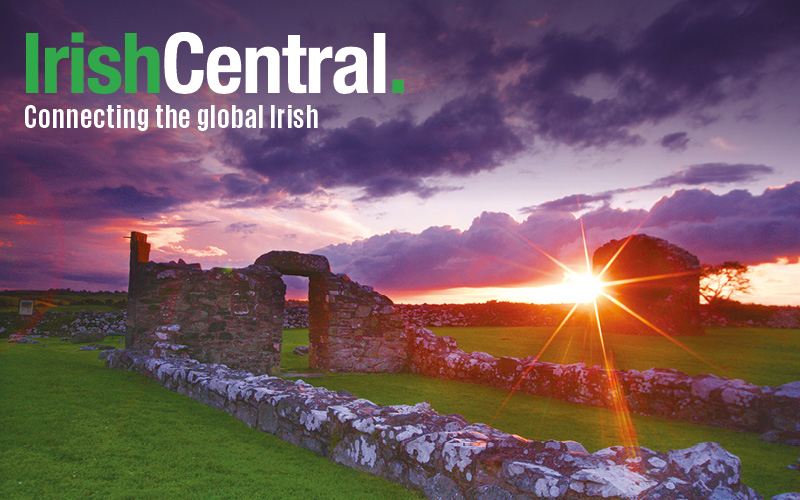The Great Irish Famine Voices Roadshow is bringing together Ireland’s emigrants and descendants of the Great Famine to tell their stories.
In 1994, Irish President Mary Robinson marked the official opening of the National Famine Museum in Strokestown Park, Ireland, by noting that “history is not about power or triumph nearly so often as it is about suffering and vulnerability.” The true record of that suffering often dies with history’s victims.
The location of the National Famine Museum in Strokestown Park, County Roscommon, is apt, given the role of the estate in the history it is now tasked with preserving. One of the first counties to report the potato blight, Roscommon was devastated; a Dublin newspaper reported that “in Roscommon, deaths by famine are so prevalent that whole families who retire at night are corpses in the morning.”
By 1847, with no relief for the impoverished, local tensions resulted in the assassination of landlord Major Dennis Mahon, who had ordered evictions and assisted emigration of his tenants on coffin ships. The killing exacerbated the plight of the local population, which shrank by 31% over the Famine decade.
The town’s dual history is housed within Strokestown Park, the estate owned by wealthy Anglo-Irish families for generations that became a natural location for the museum when 50,000 documents bearing witness to the history of deprivation were discovered on the property.
Now, the National Famine Museum is taking its show on the road with a remarkable new initiative to restore and re-create the historical record of the Great Famine as told by those affected. The goal of the Great Famine Voices Roadshow, as the project is called, is to collect narratives and oral histories of the Famine Irish through their descendants in the U.S. and Canada. The aim of the Roadshow is to deepen the historical understanding of the greatest catastrophe of 19th century Europe by documenting the experiences of the Famine’s descendants.
The Roadshow is a series of open-house events in cities that is designed to collect, preserve and make available for future study the oral histories of Irish emigrants, their descendants, and members of their communities. The Roadshow will feature short talks about the Irish National Famine Museum in Strokestown Park and the Great Hunger by leading experts in the field including historian Dr. Christine Kinealy, of Ireland’s Great Hunger Institute at Quinnipiac University.
“We are excited to meet people during the Great Famine Voices Roadshow and hear their family stories about how their ancestors came from Ireland to start new lives in the United States and Canada,” said Dr. Kinealy.
“This Roadshow will provide a unique opportunity for Irish-Americans and Irish-Canadians to share their stories, strengthen their sense of ancestry, history and current Irish connections. All are welcome to these events,” said Caroilin Callery, a Board Member of the Irish Heritage Trust and Director of the National Famine Museum. “Over the past few years, we have been in search of stories from ‘the next Parish’ in the U.S., where so many of those who survived the Great Hunger made new lives. We need to hear and preserve these stories.”
The Great Famine Voices Roadshow will encourage members of the general public to share their family stories, memories and artifacts associated with Irish Famine Migration in the 19th century. This is your opportunity to tell your story to a small mobile crew from the Irish museum at selected local venues in the U.S. and Canada. (For cities, dates and times see opposite page.) During the scheduled time a planned program of short talks will be presented outlining the Roadshow, the Great Hunger and Irish National Famine Museum. The collected stories will be preserved and archived on the museum's Great Famine Voices website.
“The goal,” says Dr. Jason King of the Irish Heritage Trust, “is to make accessible the personal accounts of immigrant families so that future generations may better understand the realities of this rich history of immigration.” The project plans to collect contemporary interviews across several generations.
Following the launch at the American Irish Historical Society in New York on April 9, a schedule of activities with partner institutions will take place. Partners include Glucksman Ireland House at New York University, The Burns Library at Boston College, Ireland’s Great Hunger Institute (Quinnipiac University) at the Knights of Columbus Museum in Connecticut and the Free Library of Philadelphia at Parkway Central Library. Further recordings will be scheduled during May in Montreal and Toronto.
All are welcome to these free public events. Come along and tell your story.
For more information about the Great Famine Voices Roadshow, click here
If you would like to share a family memory or story online, please contact Dr. Jason King ([email protected]).




Comments